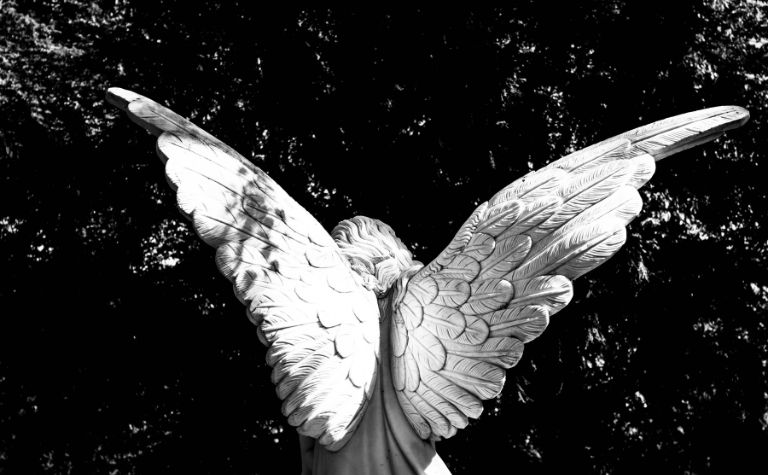Readers find angels throughout the Bible, from Genesis to Revelation, yet some believe they are figments of the imagination or a literary device and nothing more. Nevertheless, the Lutheran tradition has sought to base its theological doctrines on the teachings of Scripture for over 500 years. So what do Lutherans believe about angels?
Lutheranism has historically believed that angels exist and are servants of God, just as the Bible teaches. Lutherans believe Michael is the archangel, and God has also given other angels organization, rank, and roles. Angels communicate God’s will, carry out judgment, protect people, and much more.
What are angels like? What do they do? What do Lutherans believe about fallen angels? Keep reading to learn more.

Angels in the Lutheran Tradition
Bible readers encounter angels in the first chapters of Genesis, the last chapters of Revelation, and everywhere. Angels provide for God’s children and punish His enemies.
They reveal God’s will to people like Abraham and Mary. Angels also ministered to Jesus Christ after he successfully resisted the devil’s temptations in the wilderness (Matthew 4:1-11). (Also see What Do Lutherans Believe About Mary?)
What are angels?
Classical Lutheran orthodoxy bases its doctrine of angels on Scripture. Like other Protestant theologies, Lutheranism has historically sought to articulate what the Bible teaches about angels and refrain from guessing what it doesn’t say.
In some cases, angels can be a subject that leads to wild speculations, which Lutheranism holds is unwise. (Also see What Bible Translation Do Lutherans Use?)
- The nature of angels: Angels are spiritual beings. God created angels. Some theologians believe that God created them on the 6th Day. Specific passages of Scripture reveal that angels can take on human form (e.g., Gen. 19:1-22), but that isn’t their usual mode of existence. Angels are immortal (Luke 20:36).
- The names of angels: The word translated as “angel” in English Bibles means “messenger,” which signifies that they communicate God’s will to people. Angels are called messengers in the Old and New Testament (e.g., Gen. 32:3, Luke 7:24). Two angels are mentioned by name in Scripture: Michael (Dan. 10:13) and Gabriel (Luke 1:19). Angels are also called different names in the Bible, for example, “sons of God” (e.g., Job 1:6).
- The number of angels: The Bible doesn’t say exactly how many angels God made. Most theologians believe they are countless angels, but there isn’t an infinite amount.
- The order of angels: The Bible mentions different classifications of angels. Cherubim and Seraphim are two examples. Scripture doesn’t describe the order of angels exhaustively. Angels also have rank. Michael is the archangel. Terms like principalities, powers, authorities, dominions, and thrones probably describe rank among angels in specific contexts (e.g., Rom. 8:38, Eph. 1:21, Col. 1:16), especially in the writings of Paul.
German Reformer Martin Luther once said, “The acknowledgment of angels is needful in the church.”
What Are Angels Like?
Angels have personhood. They aren’t emotionless, willless, spiritual automatons. Instead, angels are holy, intelligent, and willful creatures passionate about worshiping God (e.g., Rev. 4-5) and serving Christ.
- Angels are holy: Angels that didn’t succumb to sin (more below) are holy. This aspect of their character is seen in their name, “holy ones” (e.g., Psa. 89:5, Luke 9:26). They have the ability to discern good and evil (2 Sam. 14:17).
- Angels are knowledgeable: Angels are intelligent creatures. They are not omniscient or all-knowing, like God, but they demonstrate having more knowledge than people in many cases. There are many examples in Scripture of angels telling people something that would happen in the future.
- Angels magnify Christ: Christ is the head of all angels (Eph. 1:20-22) and serves His purposes. Angels announce Christ’s birth (Luke 1:26-35), guide his earthly parents (Matt. 2:13), minister to him (Matt. 4:11), and proclaim his resurrection from the dead (Matt. 28:2-7).
Psalm 89:5 reads, “Let the heavens praise your wonders, O LORD, your faithfulness in the assembly of the holy ones!” (ESV)

Do Angels Have Wings?
For thousands of years, artists have depicted angels with wings in art, such as statues, paintings, and figurines. The images of angels were even embroidered into the tabernacle curtains (Exod. 26:1). (Also see Do Lutherans Speak in Tongues?)
Physical representations of angels also adorned Solomon’s temple (1 Kings 6:23-28). Even when an artist does their best to depict angels biblically, at least some representation is due to the imagination.
- Seraphim have wings: The Bible describes Seraphim with six wings (Isa. 6:2-6). They fly above God’s throne and worship Him.
- The “living creatures” have wings: The “living creatures” described in Revelation 4-5 have wings. Some scholars believe they may be the same creatures mentioned in Isaiah 6.
Isaiah 6:2 reads, “Above him stood the seraphim. Each had six wings: with two he covered his face, and with two he covered his feet, and with two he flew.” (ESV)

Do Lutherans Believe In Fallen Angels and Demons?
Classic Lutheran orthodoxy teaches that fallen angels, also called demons, are real. As the Bible teaches, Lutheranism has historically taught that fallen angels were once pure and holy, yet some sinned.
- Satan is a fallen angel: Satan was originally good but sinned against God. Unlike sinful people, God won’t redeem Satan. His destiny is eternal punishment (Matt. 25:41). “Satan” means accuser, and he tempts believers to sin and destruction (1 Pet. 5:8-9). Christ calls him the “evil one” and the “enemy” (Matt. 13:19, 28).
- Some angels followed Satan in his rebellion: Demons are once-holy angels that followed Satan in his rebellion against God. They are also called “evil spirits” (e.g., Luke 7:21). God will punish them at the end of time (Matt. 25:41).
Matthew 13:19 reads, “When anyone hears the word of the kingdom and does not understand it, the evil one comes and snatches away what has been sown in his heart. This is what was sown along the path.” (ESV)
Do Angels Interact With People Today?
Lutherans believe that angels engage with people today. They may minister to people in unseen and unknown ways.
Hebrews 13:2 reads, “Do not neglect to show hospitality to strangers, for thereby some have entertained angels unawares.” (ESV) Some believe angels participate in the Church’s worship of God as well.
One Lutheran writer says, “Angels even join us in worship every Sunday. They are the topic of some of our finest hymns (LSB 521, 522, 523, etc.). And during the singing of the Sanctus, we join our voices with the saints who’ve gone before us and with the entire heavenly host (Is. 6:3). Like us, the angels of the Lord also love to hear the proclamation of the Gospel, which was spoken by the prophets and is now preached by faithful pastors (1 Peter 1:12; Eph. 3:10).”
The first two stanzas in the Lutheran hymn Christ, the Lord of Hosts, Unshaken reads:
Christ, the Lord of hosts, unshaken
By the devil’s seething rage,
Thwarts the plan of Satan’s minions;
Wins the strife from age to age;
Conquers sin and death forever;
Slams them in their steely cage.
Michael fought the heav’nly battle,
Godly angels by his side;
Warred against the ancient serpent,
Foiled the beast, so full of pride,
Cast him earthbound with his angels;
Now he prowls, unsatisfied
Martin Luther once said, “That angels are with us is very sure, and no one should ever have doubted it.”
References:
[1] Source
[2] Source
[3] Source
Related Questions
The Lutheran and Episcopalian traditions have profoundly impacted Protestant Christianity in Europe, the United States, and worldwide. Yet, these two branches of the Christian faith have similarities...
The Lutheran tradition is a 500-year-old branch of Protestant Christianity. Non-denominational churches are a fast-growing segment of evangelical Christianity, especially in the United States and...
